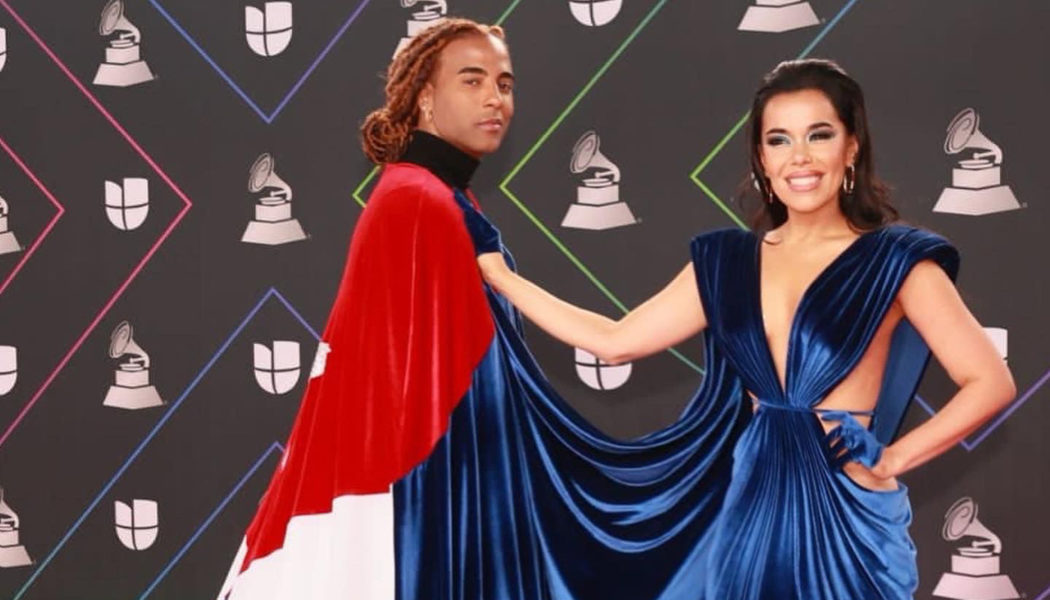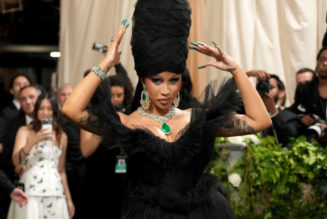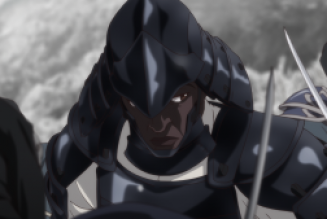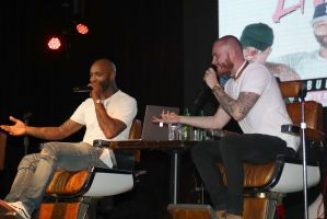Cuban rapper Yotuel Romero and his superstar singer/songwriter wife, Beatriz Luengo, wrote the first verses of “Patria y Vida” in 2020 to “report the constant violations of human rights in Cuba and the repression of freedoms of expression for the artistic community,” said Luengo during a panel on March 17 at SXSW.
Today, even after “Patria y Vida” — which was also co-written with Gente de Zona, Descemer Bueno, Maykel Osorbo and El Funky — inspired Cuba’s current anti-government uprising and won the Latin Grammy for song of the year, change has been slow to come. But Romero and Luengo hope an upcoming documentary of the making of the song will take its message even further.
“People have the power,” stressed the rapper, who attended the first live edition of SXSW since the pandemic to talk about the upcoming documentary that he and Luengo are in the process of making to show how “Patria y Vida” was conceived and how they hope to continue to use the song to transform his home country. The message of “Patria y Vida” is particularly poignant now.
“That song means you have power,” he says. “We need to react to what’s happening. We’ve seen people in Ukraine fighting for their freedom. Of course, no one wants a war, but when I see people standing in front of tanks, those examples show me humanity is not lost.”
But, the rapper says, Cubans can’t do it alone, which is why he, along with Luengo and his fellow Cuban artists, took a stand.
“Cuba is an abused woman, who first and foremost needs to identify and isolate her abuser,” said Romero. “If you have a dictatorship that controls everything, and whose only dialogue is homeland and death, it’s impossible to start a dialogue.”
A clear example of the regime’s iron rule is Osorbo, who is still jail in Cuba for his role in protests and in the song.
“We’re trying everything [to get him released], but what can you expect from a country that supports Russia?” said Romero bluntly. “Cuba learned from Russia how to treat people, how to punish people for speaking out.”
Romero and Luengo also denounced ongoing human rights abuse in Cuba, from gay rights to children imprisoned for speaking out against the government. And Romero, who is Black, spoke out — as he often has — about Black oppression in Cuba.
“Blacks in Cuba live in the worst conditions. Fidel Castro lied to Black people when he said, when I have the power, Black people will have the same power as whites. Bulls—. The six singers in ‘Patria y Vida’ are Black. I think this is one of the things that the dictator Castro hates. But rap was created for that: to protest abuses.”
And that’s what Romero plans to keep on doing.
“We didn’t write this song; someone higher up murmured those words,” says Romero. “For 62 years, Cuba’s slogan has been ‘Homeland or Death.’ It is the slogan of the revolution. It means if you want to stay in my country, it has to be my way. There are no options. They don’t admit differences.”
For “Patria y Vida,” adds Luengo, “We changed ‘death’ for ‘life,’ and we changed the word ‘or’ for an ‘A.’ Because ‘or’ is a terrible way to have a slogan. There’s just one option. It’s Patria or nothing. My way or nothing. Patria y Vida is homeland and life. And that is so important.”
[flexi-common-toolbar] [flexi-form class=”flexi_form_style” title=”Submit to Flexi” name=”my_form” ajax=”true”][flexi-form-tag type=”post_title” class=”fl-input” title=”Title” value=”” required=”true”][flexi-form-tag type=”category” title=”Select category”][flexi-form-tag type=”tag” title=”Insert tag”][flexi-form-tag type=”article” class=”fl-textarea” title=”Description” ][flexi-form-tag type=”file” title=”Select file” required=”true”][flexi-form-tag type=”submit” name=”submit” value=”Submit Now”] [/flexi-form]










Tagged: entertainment blog, Film, Latin, music, music blog, NEWS, SXSW